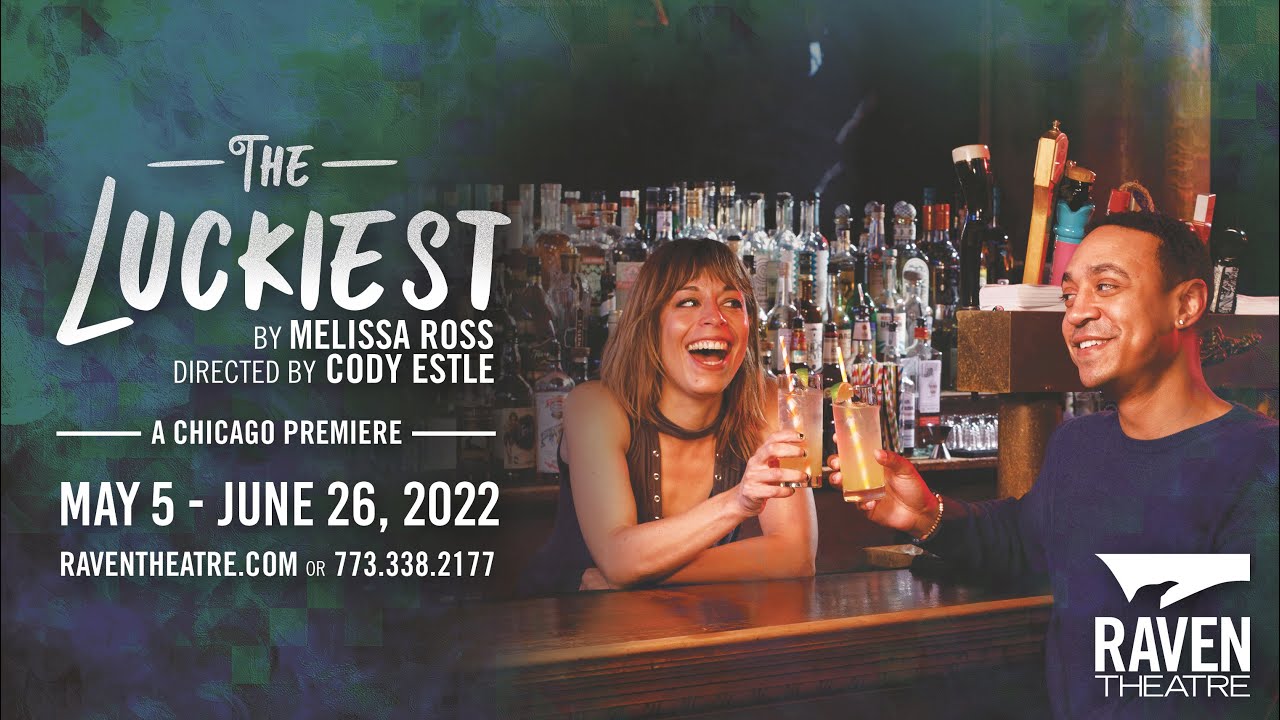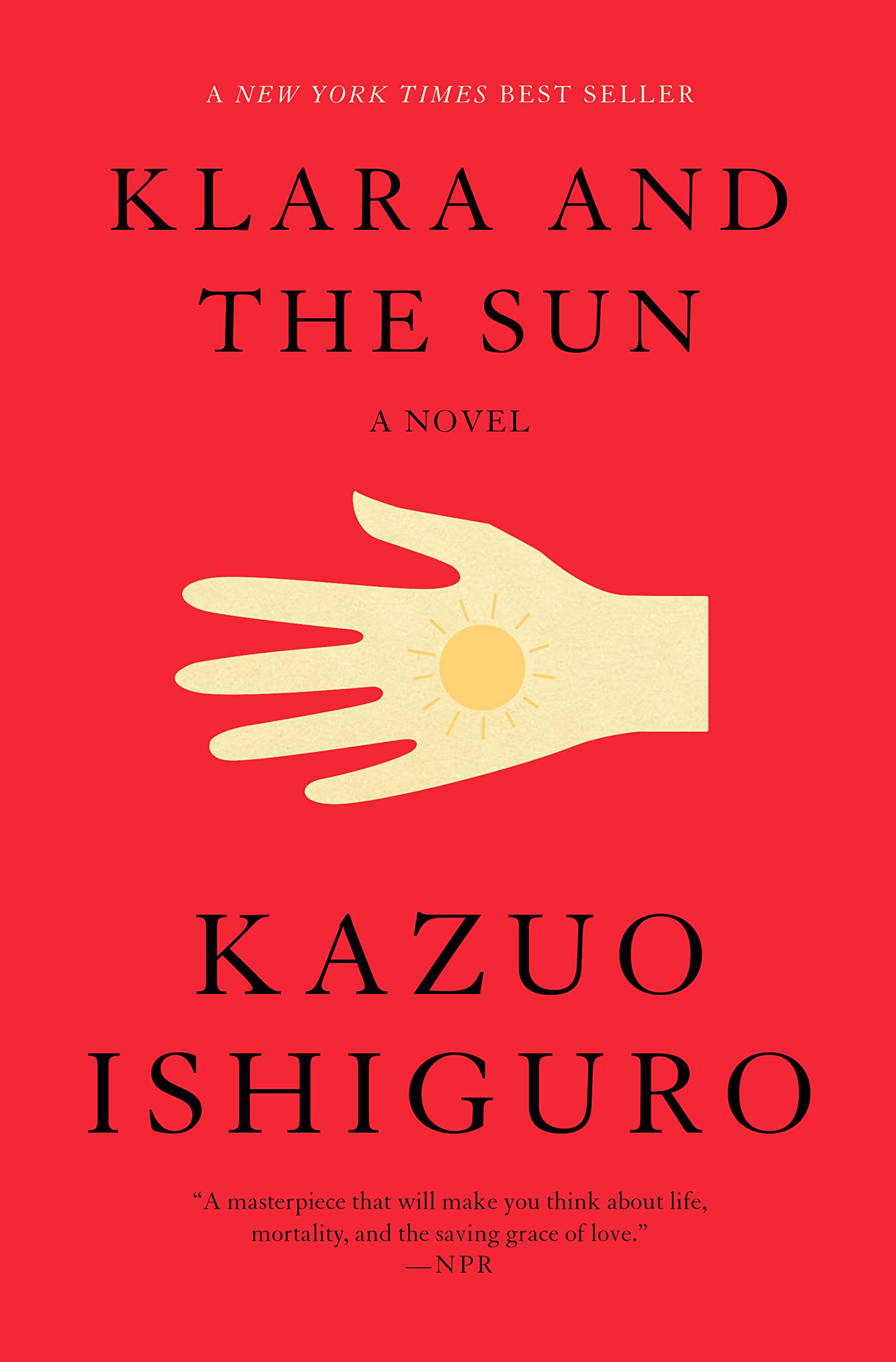
Whether we pick up a book or go to see a play, we don’t always know what the plot is all about. And sometimes that makes it even more interesting. But is that always the case?
Here I offer my thoughts on three works:
- The Luckiest by Melissa Ross, Produced by Raven Theater,
- The Year of Magical Thinking by Joan Didion, Produced by Remy Bumppo Theater, and
- Klara and the Sun, a Novel by Kazuo Ishiguro, Published by Knopf, 2021
The Luckiest
Promotion for The Luckiest includes, “CONTENT WARNING: This play contains smoking, strong language, and adult content.” I always think adult content is sex and look forward to that. In both plays, the adult content is death. And the copy describing the content of The Luckiest pussyfoots around the real topic – death by ALS – because it would be a plot spoiler.

I don’t blame Raven Theater. I applaud them for producing such a tough play in a professional manner. The Luckiest is a stunning three-character exploration of death. But the friend by my side in the theater began sobbing mid-way through, and continued past the parking lot, post show.
Her good friend, Stacy, died several months ago of a similar life-robbing disease. “Why didn’t I know what this was about? I would never have come!” How far does the responsibility of the producers extend?
It was clear from the opening lights that the adult content was physical degeneration. The main character, Lizette (Cassidy Slaughter-Mason in a fire-cracker performance), could barely talk and motion from her motorized wheelchair. Her best friend, Peter (Christopher Wayland who always chooses grace before self-pity in his role as caregiver), was assuming the party-planner role for the farewell gathering.
Lizelle’s sparky mother, Cheryl (Tara Mallen who delivers empathy, humor, and love), feels she has to augment the party snacks with a funerial lasagna casserole. The characters are developed through flashbacks. It’s difficult to say whether the high-point of the plot is the 12-minute monologue Lizelle delivers about what it’s like to die from ALS, or the final lights out and dark stage.
No one left the theater laughing. But I, and perhaps others, did research the 11 places in the U.S. where you can have medically assisted death: California, Colorado, District of Columbia, Hawaii, Montana, Maine, New Jersey, New Mexico, Oregon, Vermont, and Washington. Be sure to check each place for their requirements.
At this time, Oregon is the only state that allows a dying person to travel to the state to obtain the drugs and then return to their home. People from out of state who assist the dying person are still liable for prosecution under the home state’s laws.
The Year of Magical Thinking
The Year of Magical Thinking leaves no doubt about its subject matter – the sudden death of playwright and author Joan Didion’s husband of 40 years, John Gregory Dunne, and the unexpected tragic death of her daughter, Quintana Roo, after a series of medical crises – all within a year.

Dunne died in New York at their dinner table. Quintana died a year later in hospital in Los Angeles, near the family’s original home in Malibu.
Britannica defines magical thinking as, “the belief that one’s ideas, thoughts, actions, words, or use of symbols can influence the course of events in the material world. Magical thinking presumes a causal link between one’s inner, personal experience and the external physical world.”
In the play, Didion cannot discard John’s shoes because he will need them when he returns. “If only I’d done this; if only I’d done that,” is the magical refrain that seeks to transpose reality.
It’s the desertion of Dunne as Didion must face the unrelenting mess of their daughter’s decline that struck me as true grief. Didion is abandoned, regardless of the nature of their marriage.
In older marriages you rely on the partnership, each member knowing its role. When you assume solo responsibility, you know you can do it. Perhaps you do it better because you don’t have to acquiesce control. But the lack of partnership cuts to the core. The lack of bonded companionship in crisis is so lonely.
Annabel Armour was stellar as Joan Didion. On a simple set of serene serpentine planks, she appears to read from the book, pausing to expound on thought provoking passages with memories and speculation.
In the original Broadway production starring Vanessa Redgrave, she sat looking straight at the audience for 90 minutes. In the much more intimate Theater Wit, the casual meandering of Armour threaded our thoughts along with hers into the tapestry of loss. A beautiful production.
For a review of Good Night, Oscar, starring Sean Hayes, and heading to Broadway this fall, click here.
Klara and the Sun
How does Ishiguro’s book Klara and the Sun fit with these two theatrical productions about death? I saw the narrative as a film script from the moment I began to read. And, I imagined the end of the story as death.

Ishiguro’s books are not easily translated to the screen with the award-winning exceptions of The Remains of the Day and Never Let me Go. Klara and the Sun, a near-future dystopian novel, immediately presented to me visually: the automated friends (AFs), the confined locations (the AF shop, the home, the small city), the flattened characters resulting from a hierarchical processing of the citizens.
AFs don’t have human brains. They have solar powered AI processors. These sometimes fractalize objects seen through the eyes of the AF until the AI is able to construct the appropriate scene. Digital screen technology will be able to reproduce these distillations beautifully.
AFs are designed to be companions for high-achieving teens who lack empathetic peers. These teens are grinds, focused on studies. Social gatherings are glorified play-dates arranged by parents.
The protagonist, and our guide throughout, is Klara, an AF longing to be a teen’s companion. She’s more observant and curious than her fellow AFs. Observation teaches her how to respond.
Is this the way we learned as children? Was emotional response innate, or learned? If we observed adults sobbing at a funeral, did we regard that as proper and expected, or feel that we would/should respond in a different manner? Klara’s keen observations are combined with her programming to always be subservient to her owner family.
Why combine this story with death? Because Ishiguro makes it clear from the first chapter that Klara’s teen, Josie, is compromised. She spends long sessions on bed rest, unable to study. Josie’s older sister, Sal, is already deceased from causes unknown to us. Josie’s parents are separated, something to do with the culling of science workers who are replaced by AI. Their love for Josie is tainted with panic that she too will die.
Fortunately for Josie, she not only has Klara as a steadfast companion, but next door lives teen-age Rick and his mother, Helen. For reasons that result from lassitude or depression, Helen chose not to “elevate” Rick. He definitely has intellectual skill, but self-developed. Josie and Rick, though dealing with normal teen relationship angst, are pledged to each other since childhood.
Sun is Klara’s deity. Solar powers the AFs. Klara refers to the sun with no article and a capital S – Sun. This took me right back to the early agrarian civilizations that worshipped Sun as the bringer of warmth and growth. Here we have a creation so highly advanced that it again worships Sun.
Not unlike Blade Runner and other novels about replicants and robots that begin to assume human emotions, Klara grows to love Josie. When Josie becomes so ill, that death appears imminent, Klara sacrifices to Sun so that Josie will live. For me, this was a stunning twist of the plot. Forgive me if I’ve ended this with a “spoiler alert.”
Klara and the Sun is highly recommended. It has been optioned. We should see the motion picture within two years.
For more recent book reviews, please visit AnnBoland.com.
What do you think about knowing beforehand the main subject of a play or book? Would you see the play or read the book if you know it might affect you emotionally? What subject matter do you prefer not to explore and why?
